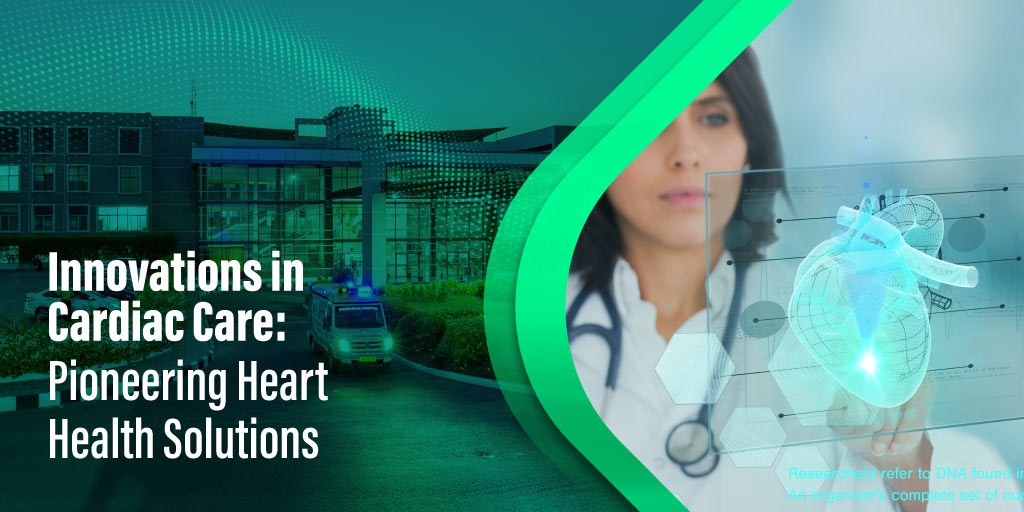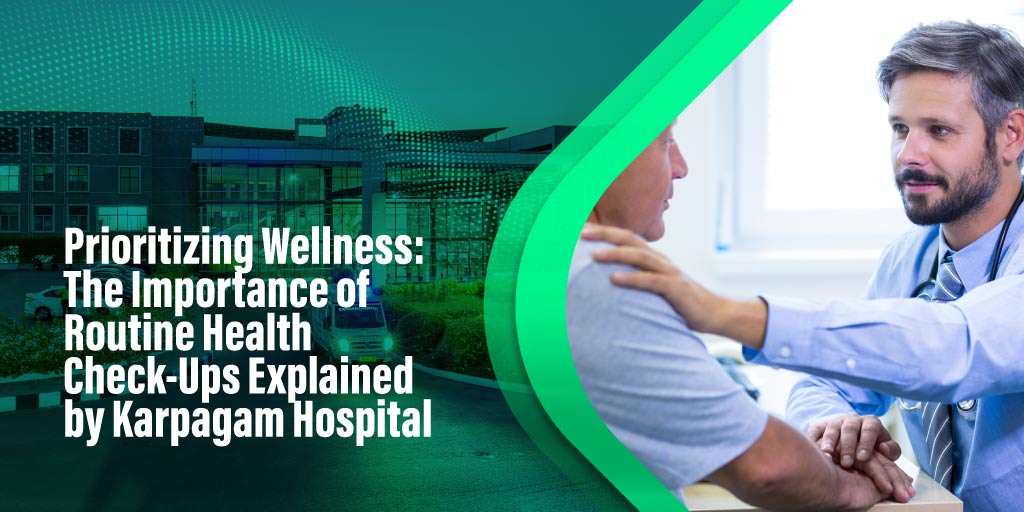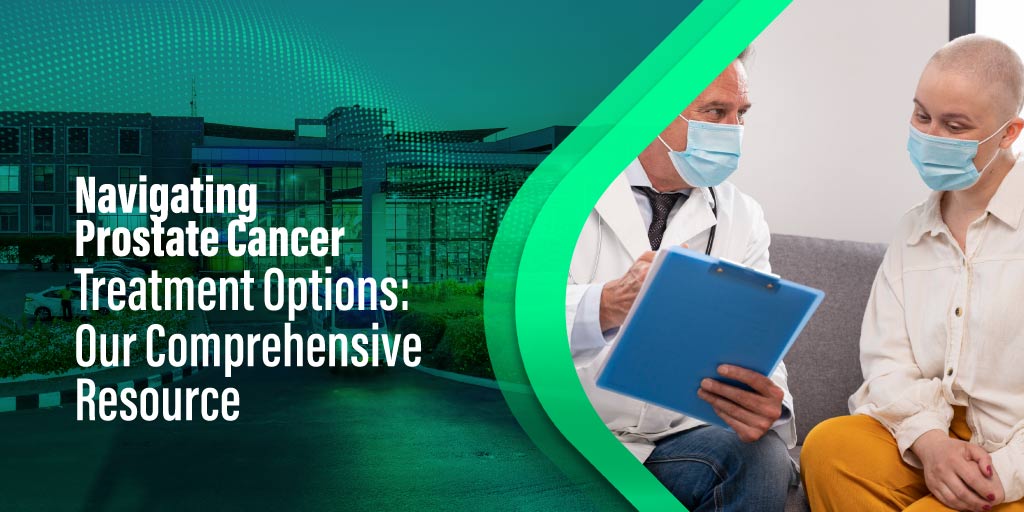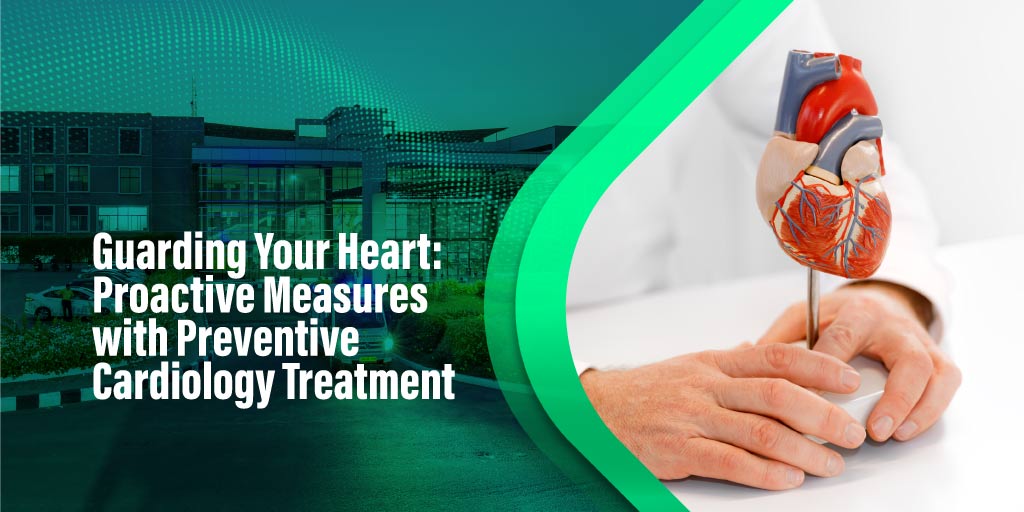
As India battles a growing cardiac disease burden, doctors are looking at advanced technologies to improve patient outcomes. 1 in 4 deaths occur due to heart-related problems in India. Stroke and coronary artery disease especially lead to more than 80% of this death rate.
A new method of creative approaches is entering the field of cardiac care to enhance patient outcomes and heart health. The best cardiology hospital in Coimbatore uses advanced technologies to provide the best heart health services.
Artificial Intelligence for Cardiac Diagnosis
Cardiology is one of the fields where artificial intelligence has made advancements. In recent years, it has been gradually integrated into cardiac diagnostics. It offers more accurate and efficient methods for diagnosing heart-related conditions.
At times, human eyes can miss minute details. But large volumes of data including MRIs can be analyzed by AI to find tiny patterns and anomalies that the human eye could miss. This speeds up the diagnostic procedure and improves the accuracy of cardiac assessments.
Cardiac Surgery with Robotic Assistance
Heart surgery is one of the many medical areas where robotic-assisted surgery is becoming more and more common. Robotic technologies provide surgeons with more flexibility and precision. It improves the performance of complex cardiac procedures with fewer incisions.
This less invasive method improves the results and reduces recovery periods. Robotic-assisted surgery is still in its early stages of development yet it has the potential to drastically change the field of cardiac care.
Precision Medicine
One of the most significant advancements in cardiology is the rise of precision medicine. The top 10 cardiologists in Coimbatore can now tailor a patient’s care based on specific risk factors or their genetic makeup.
Genetic testing has helped to identify certain genetic variants that lead people to certain heart diseases. For instance, patients with high cholesterol and a genetic susceptibility to familial hypercholesterolemia may now benefit from targeted drugs that address the underlying cause of their illness.
Remote Patient Tracking for Prolonged Heart Problems
The treatment of chronic heart diseases has changed dramatically with the introduction of wearable technology and remote monitoring tools.
Remote Monitoring: Continuous home monitoring of vital indicators like blood pressure and heart rate is now beneficial for patients with cardiovascular problems. These gadgets give healthcare professionals access to real-time data.
Virtual Consultations: It allows patients to contact cardiologists to schedule virtual appointments. By reducing the number of needless hospital visits it enhances patient results but also reduces the workload on healthcare institutions.
Using 3D Printing in Heart Surgery
3D printing technology has changed the field of heart surgery. With the use of medical imaging technology, surgeons can produce accurate and customized heart models for individual patients. These 3D-printed models help surgeons to practice and improve their procedures even before entering the operation room. Thus it makes them useful tools for planning complex heart surgery.
Minimally Invasive Interventions
Open heart surgeries are frequently used in traditional cardiac procedures, which have a higher risk and longer recovery period. However, the method of treatment for many heart problems has been changed with the introduction of minimally invasive treatments.
Transcatheter Aortic Valve Replacement (TAVR) – Aortic valve stenosis is a disorder where the heart’s aortic valve narrows and restricts blood flow. TAVR is an operation that has revolutionized the treatment of this problem. Individuals who are deemed high-risk candidates for surgery or elderly people can benefit most from this less invasive method.
Percutaneous Coronary Intervention (PCI) – A minimally invasive treatment called PCI, also called coronary angioplasty, is used to treat coronary artery disease. A small tube is inserted via the blood arteries to the coronary artery that is blocked or constricted during PCI. After that, a balloon is inflated to expand the artery, and frequently a stent is also placed to maintain blood flow.
Regenerative Medicine and Stem Cell Therapies
Regenerative medicine can repair and regenerate damaged tissues, including those in the heart. Regenerative medicine, although still in its early stages, provides a window into a future in which new approaches to therapy will enable the heart to heal itself.
Stem cell therapy: Stem cell therapies are being researched as a way to restore cardiac tissue that has been harmed by heart attacks or other cardiovascular diseases. The best heart specialist hospital in Coimbatore use these technologies to repair damaged tissue and enhance heart function by transplanting stem cells into the affected areas.
Cardiac Tissue Engineering: Tissue technology is being investigated by researchers as a potential method for producing transplantable functioning heart tissue. Scientists want to create patches of cardiac tissue that can merge with a patient’s heart and restore function by merging cells with biocompatible materials.
Nanotechnology for targeted drug delivery
Nanotechnology has found uses in a variety of medical sectors with cardiology benefiting from its capacity for tailored drug delivery.
Drug Delivery: The Treatment can be delivered more precisely and effectively if drugs are designed into nanoparticles and delivered directly to particular regions of the heart.
Imaging and Diagnosis: Imaging techniques can be made more precise and sensitive by using nanoparticles that are engineered to attach to particular chemicals linked to heart disease.
The field of cardiology is seeing an increase in innovation that is transforming the landscape of cardiac care. The future of cardiac care appears increasingly promising as technology develops. It has the potential to completely transform the way we identify, diagnose, and treat cardiovascular diseases. With these technologies, we can build a healthier future and reduce the rate of deaths that occur due to heart problems. Visit the best cardiology hospital near you and prioritize your heart health.







